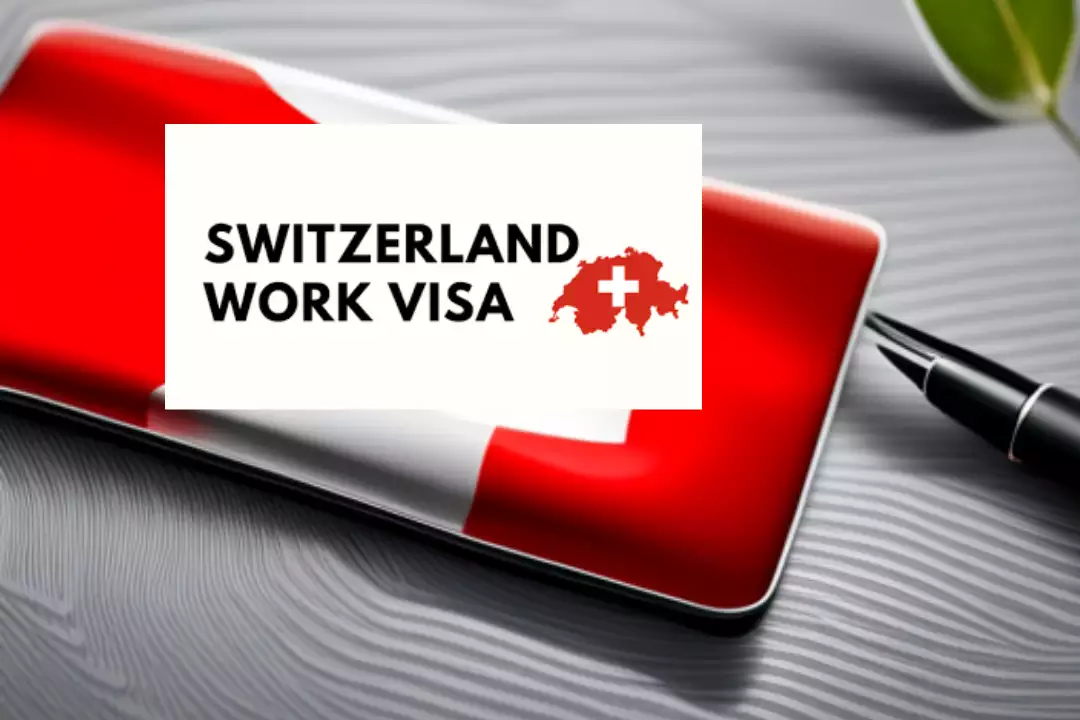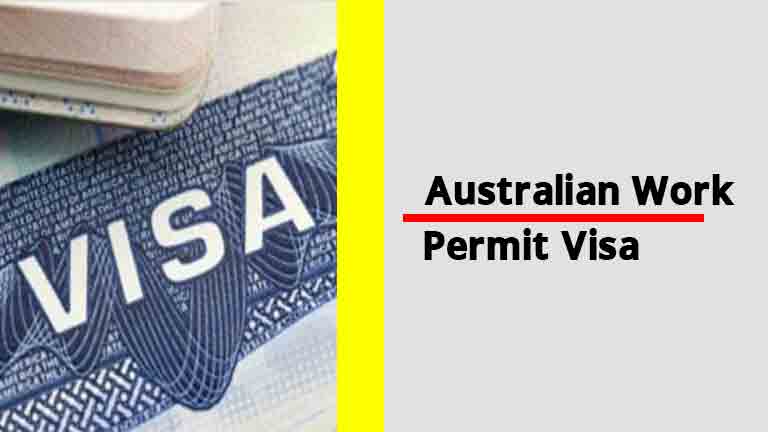Switzerland Work Visa
If you want to be allowed to work in Switzerland, you will need a Switzerland work visa.
The Swiss work visa is one of the types of the Switzerland long-stay visas (also known as national or D-visa). It allows the holder to work in Switzerland for the duration that the visa is issued.
The process of applying for a Swiss work visa depends on your nationality, among other things. As with other types of visa, different rules apply for EU/EFTA citizens as opposed to non-EU/EFTA citizens.
What are the Eligibility Criteria for a Switzerland Work Visa?
As a non-EU/EFTA citizen, you are eligible to apply for a Switzerland work visa if you meet the following conditions:
- You are a skilled and qualified worker (manager, specialist) and you have a university degree, several years of work experience, and specific expertise.
- You already have a job waiting for you.
- There is no EU/EFTA citizen who could take the job instead.
- The annual quotas for Swiss work visas allow it.
If you meet those requirements, and your employer is applying for your residence permit, then you can apply for your Switzerland work visa.
How to apply for a Switzerland Work Visa?
The process for obtaining a Swiss work visa goes through these steps:
- Finding a job in Switzerland.
- Completing the Swiss work visa document file
- Your employer applies for your residence permit in Switzerland.
- You apply for the Switzerland work visa in your country.
Finding a job in Switzerland
Finding a job in Switzerland may seem like an impossible, daunting mission. However, there are ways you can do that.
Perhaps someone already approached you with an offer and you don’t have to actively look for a job.
However, if you don’t have an employer in Switzerland already, one of the easiest ways to find a job that fits you is through a recruitment agency.
International recruitment agencies can help foreign nationals find a job in Switzerland that is suited to their skills and experience. They know the local job market and can help you with your job application, CV, interview, and give tips on how to secure the job.
Furthermore, they are usually informed of work and residence permits, and any other formalities that involve hiring foreign workers.
You could also contact a local recruitment agency in Switzerland, or even look up work online through job listings.
You can find work whichever way you feel is easiest for you, but the bottom line is, you need a job before you can apply for a Swiss work visa.
Completing the Swiss work visa document file
When you apply for a Switzerland work visa, you have to make an appointment at the Swiss representation (embassy/consulate) in your country. You have to submit the application in person and pay a non-refundable visa fee. When you submit your documents, they need to be in triplicate.
The documents required for a Switzerland work visa include:
- Three completed and signed long-stay visa application forms in either German, French, Italian, Spanish or English.You can download it online or, in some cases, find it at the Swiss embassy/consulate you are applying in.
- Valid passport/travel document with at least two blank pages. It must have been issued within the past 10 years, and be valid a minimum of three months after you intend to leave Switzerland.
- Three copies of the relevant pages of your passport (pages 1-4 and the last page, the page showing the issue and expiry date, copies of all previous visas.)
- Four identical passport-size pictures. They must be recent and biometric.
- Your job contract along with two copies.
- Proof of your professional activity.
- Copies of your qualifications (diplomas, certificates, etc.)
- Details about your previous education, like your grades, subjects, and the dates you attended the university/college.
- Evidence you tried getting work in another method.
- Your CV.
- Proof of health insurance. Anyone working in Switzerland needs to obtain health insurance that covers the entire period of stay.
Documents that are not in German, French, Italian, or English must be translated.
Keep in mind that the required documents may change depending on the country. The Swiss authorities reserve the right to ask for any additional documents they deem necessary.
Applying for the work visa
After finding a job in Switzerland, the Swiss work visa application process is as follows:
- First, your employer applies for your residence permit at the local cantonal employment services in Switzerland. There are no separate work permits and residence permits in Switzerland. Instead, you will be issued a residence permit which gives you permission to work.
- Your employer can prove to the cantonal authorities that there was no EU/EFTA citizens suitable for the job instead.
- The local cantonal authorities review your application and refer it to the Federal Office for Migration (FOM) for approval. When they make their decision, the FOM takes into account your language skills, your age, and how well you will be able to adapt to Swiss culture.
- While your employer applies for your Swiss residence permit, you have to apply for a Swiss work visa (also known as a long-stay or a national visa) from your home country. Most non-EU/EFTA nationals need a long-stay (national) visa to enter Switzerland. See here whether you need one. You can apply for the Switzerland work visa at your country’s Swiss embassy/consulate.
- When the FOM makes their decision on your residence permit, they inform you, your employer, and the cantonal offices. If the FOM approves your residence permit, the cantonal offices inform the Swiss embassy/consulate.
- The Swiss embassy/consulate in your country gives you your Swiss work visa.
- You enter Switzerland and you have 14 days to register at the Residents’ Registry Office through the local cantonal migration offices.
- You get your Swiss residence permit and are allowed to live and work in Switzerland.
If you are an EU/EFTA citizen
Since Switzerland has established free movement with the EU and EFTA, citizens from those countries can freely enter Switzerland and stay there for up to three months, without any visa. However, when it comes to staying longer than three months and working in Switzerland, they must apply for the adequate permit. Namely, a residence permit which allows you to take up work.
So even though they don’t need to apply for a work visa from their country (or have a job waiting for them) before they enter Switzerland, EU/EFTA nationals do need to apply for a residence permit.
Even so, an EU/EFTA citizen can obtain a work and/or residence permit easier than his non-EU/EFTA counterpart. That’s because there are no quota restrictions regarding how many EU/EFTA immigrants Switzerland will accept.
Residence permits for a Switzerland Work Visa
The types of residence permits which you can get with a Switzerland work visa are:
- Permit L for short-term residence. This permit is issued for up to one year and is tied to the terms of the employment contract. You can only work for that specific employer and company. In some cases, you can extend the visa for another year, but you cannot stay longer than 24 months with a Permit L.
- Permit B for temporary/initial residence. The B Permit is also issued for one year, but it can be renewed annually. You can only work for the same employer with this type of permit, and you cannot leave your canton. It is called an initial residence permit because if you live in Switzerland with a B Permit for 10 continuous years, you become eligible to apply for a permanent residence permit (Permit C).
- Permit C for permanent residence. If you have lived in Switzerland for ten continuous years, you can apply for Swiss permanent residence. Permit C allows you to work for any employer, change jobs as you like, and live anywhere in Switzerland you want. Permit C is also the only type of Switzerland residence permit which allows you to become self-employed.
Naturally, you have to provide your employer with all the required documents and application forms before they submit the application for your residence permit. The requirements when applying for a residence permit change based on the canton from which you are applying.
Switzerland has 26 cantons which have the authority to issue residence permits to foreigners who want to live there. You can find the information details of each of Switzerland’s 26 cantons here.






